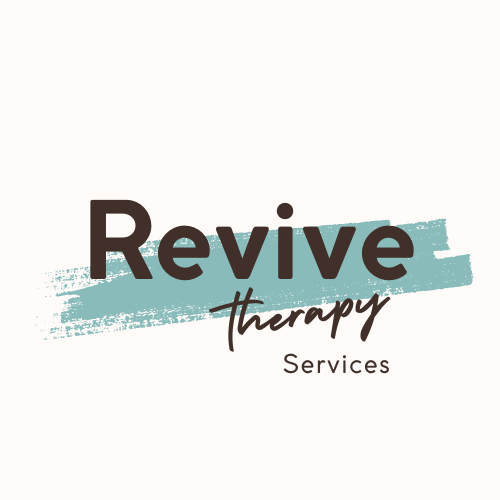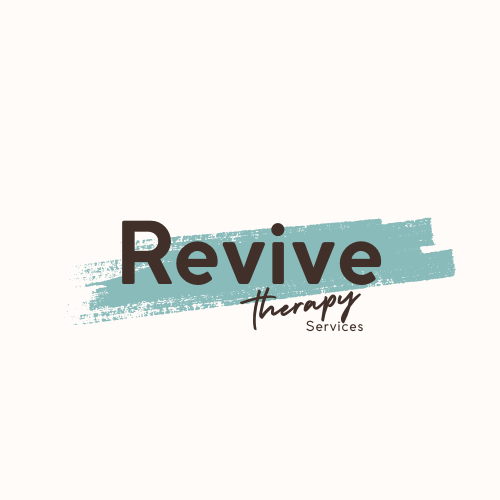5 Green Flags That You’re Ready For Trauma Therapy
Have you ever found yourself wondering if you’re truly ready for trauma therapy?
Maybe the idea has crossed your mind, but you immediately pushed it away—thinking, “I’m not ready,” or “It’s not that bad,” or even “I should be able to handle this on my own.” You’re not alone. Many people hold off on seeking trauma therapy because they believe they need to be more stable, more certain, or more emotionally put together before they can begin. There's a common myth that you have to reach a breaking point or have your entire past figured out before stepping into a therapist’s office.
But the truth is, therapy isn’t about perfection or clarity—it’s about willingness. It’s about small, powerful moments of awareness that show you’re open to something different. Readiness often doesn’t feel like confidence. It can feel like exhaustion. Or quiet curiosity. Or a sense that the way things have been isn’t working anymore. Those aren’t signs of weakness—they’re green flags for healing.
If you’ve been wondering whether now is the right time, this might help. Here are five signs you may be more ready for trauma therapy than you realize:
1.) You’re curious about why you feel or react the way you do.
Curiosity is often the first spark of healing. It’s that gentle inner voice that asks questions instead of assigning blame. Maybe you’ve noticed you get defensive during feedback at work, or you spiral into anxiety when someone doesn’t text back right away. In the past, you might have labeled yourself as “too sensitive,” “crazy,” or “dramatic”—but now, something has shifted. Instead of criticizing yourself, you’re starting to wonder: What’s really going on here? Why does this feel so big? That shift from judgment to inquiry is powerful. It means your mind and body are beginning to feel safe enough to explore the deeper roots of your reactions. Curiosity opens the door to self-understanding—and eventually, to freedom from patterns that no longer serve you.
2.) You’ve noticed patterns you want to break.
Patterns are one of the most common ways unhealed trauma shows up in everyday life. You might find yourself procrastinating whenever you fear criticism, freezing when faced with confrontation, or constantly overgiving in relationships to avoid being abandoned. These responses often feel automatic—like no matter how much you try to do things differently, you keep ending up in the same emotional loops. If you notice these patterns repeating across jobs, friendships, or romantic relationships, it’s not because you’re broken or failing. It’s because your nervous system is still operating from a place of protection, trying to keep you safe based on past experiences. These are survival strategies—not personality flaws. The fact that you’re beginning to recognize these patterns, rather than just reacting from them, is incredibly important. It means something inside you is waking up, ready to shift from surviving to truly living. Noticing the pattern is the first—and one of the most powerful—green flags that you’re ready for change.
3.) You’re tired of white-knuckling it.
When you’ve spent years in survival mode, it’s easy to believe that you just need to push through—work harder, stay busier, be stronger. You tell yourself, “Other people have it worse,” or “I should be able to handle this.” And so, you keep going. You compartmentalize. You keep a smile on your face while quietly drowning under the weight of unprocessed emotions. Maybe you numb yourself with work, alcohol, scrolling, or perfectionism—anything to avoid feeling the heaviness that’s always just beneath the surface. But over time, that way of coping begins to wear thin. You feel exhausted, disconnected, or on edge more often than not. You’re burned out—not just physically, but emotionally. That deep tiredness is not a failure—it’s a signal. It means your body and mind are telling you it’s time for something different. Feeling worn down by the constant effort of managing everything alone is actually a green flag. It shows you’re ready to receive support instead of always being the one who has to hold it all together. And that’s exactly what trauma therapy offers: space, guidance, and the tools to move from simply surviving to truly healing.
4.) You’re willing to be honest with yourself, even when it’s uncomfortable.
This is one of the bravest steps you can take—choosing to be honest with yourself, even when the truth is uncomfortable. It means you’re beginning to turn toward the parts of your life or past that you may have spent years avoiding. You’re starting to ask yourself hard but necessary questions: Am I really happy in my relationship, or am I just afraid to be alone? Why do I feel so angry, anxious, or shut down in certain situations? What am I carrying that I haven’t yet acknowledged? These questions can be unsettling, even painful—but they are also the doorway to real transformation. Because the truth is, you can’t heal what you can’t face. Honesty doesn’t mean having all the answers—it means you’re willing to stop pretending and start exploring. And that willingness, however quiet or uncertain it feels, is a powerful sign that you’re ready to begin the work of healing.
5.) You believe your life could look different.
Even if it’s just a quiet whisper—barely audible beneath the noise of fear or self-doubt—hope for a better life is enough. That tiny flicker of belief that things don’t have to stay the way they are can be the first step toward real change. Hope doesn’t always roar; sometimes, it shows up as a fleeting thought, a moment of imagining what life could feel like if you weren’t constantly anxious, overwhelmed, or emotionally exhausted. Maybe it looks like picturing a calm morning where you wake up without dread in your chest. Or a relationship where you feel safe, seen, and understood. Or the ease of making decisions without questioning yourself for days. That spark of hope—however faint—is not naive or unrealistic. It’s your inner wisdom speaking. It’s your nervous system reaching for something safer, softer, more aligned. And that hope, fragile as it may seem, is a powerful sign that you’re ready to begin. Therapy doesn’t require you to be full of confidence or certainty—it simply asks that you bring your hope, however small, and let it guide you forward.
What if you don’t feel all five green flags?
That’s okay! Readiness isn’t a checklist you have to complete before you’re “allowed” to begin healing. Even recognizing just one of these signs is a meaningful step forward. You don’t need to feel totally sure, totally strong, or totally clear. Trauma therapy is designed to meet you exactly where you are—whether you’re feeling overwhelmed, uncertain, hopeful, or somewhere in between. You’re not expected to have it all figured out before you begin. What matters most is your willingness to show up, to be curious, and to take even the smallest step toward healing. That alone is more than enough to start.
How to take the first step:
Starting therapy can feel overwhelming, but you don’t have to jump in alone. Here’s what you can do today:
- Reflect on what resonated with you from this list.
- Reach out for a free consultation with a trauma-trained therapist.
- Remember that small steps lead to big changes.
At Revive Therapy Services, we specialize in trauma therapy that goes beyond traditional talk therapy. In Philadelphia, PA we offer online and in person:
EMDR Therapy: Helps your brain reprocess stuck memories, core beliefs, and emotional patterns that live beneath the surface of your thoughts.
Somatic Experiencing: A body-based approach that helps you build tolerance for sensation and create safety within your nervous system, at a pace that respects your capacity.
IFS (Internal Family Systems Therapy): A compassionate, evidence-based approach that helps you explore and heal the different “parts” of yourself—like the inner critic, the people-pleaser, or the wounded child. Instead of trying to get rid of these parts, IFS helps you understand them, build inner harmony, and reconnect with your core Self—the calm, confident center within you that can lead the healing process.
Let’s try something different—together. Our compassionate and experienced therapists—Salima, Mary, and Kianna—are here to walk alongside you. During your consultation, we'll help you determine if our approach feels right for you.
You don’t have to navigate this on your own. Reach out today for a free consultation and let’s take the first step together.




